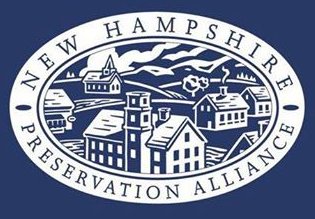Keeping that Beloved Summer Place in the Family
Learning from others, talking with your family, and legal advice are key ingredients in crafting a plan to pass on ownership of a family property to succeeding generations.
The Squam Lakes Conservation Society (SLCS), in partnership with the N.H. Preservation Alliance, recently presented their eighth program on this topic. Two guest presenters and an attorney shared their experiences in crafting legal and financial strategies to ensure that a camp or cottage remains in the family. Those who have done so emphasize that respect, cooperation, and responsibility are key and that the elements of their models are adaptable to varied situations.
“Our family looks at stewardship rather than ownership,” said the first presenter. “Our Squam property is the place where our family learns real connections between each other and with nature.” He mentioned the usefulness of the creation and use of a “Philosophical Governing Document” that expresses their family’s wishes for their property and their family’s stewardship of it.
They have created an LLC for each of the several properties they own, and then each has a trust with two branch trusts for their two children, restricted to bloodlines and regardless of the number in future generations. Shares in the trust cannot be sold outside the family and come with deep discounts in value if they are transferred. A family foundation supports upkeep and other expenses.
The second presenter’s family is still in the process of working out how they will pass on their lake property which has been in the family for 60 years. The current owners bought out two siblings, one who was not interested and one who was not in a financial position to afford second home ownership, but they continue to welcome the extended family throughout the summer months. They are beginning conversations about the future of the cottage with their three children.
Their plan includes these steps:
1. Determine interest among their 3 children in future ownership
2. Agree to consider the property as a liability and not an asset, and formalize key tenants an agreement
3. Set up a small endowment to help with maintenance
4. Divide other assets equally among the 3 children
Alexandra Breed, a real estate and estate planning attorney, described the Family Compound Trust mechanism, with Certificates of Beneficial Interest (CBI) that function as shares. Each has voting rights, and any transfers must follow original bloodlines. She recommended that an LLC be set up if you plan to rent your property. Her final bit of advice: Begin having family conversations about this topic now. It may be difficult at first but stick with it and gradually it will become easier. Then consult an attorney for the best way to implement your plan. You want to rest assured that the pleasure your family has had will be passed along to grandchildren and their grandchildren.
The SLSC offers a campstead easement that combines a historic preservation model to protect structures within a land conservation framework. Scale of buildings, materials and setting are often important elements. The Preservation Alliance holds easements that help protect significant historic structures from demolition or major alterations and also offers property owners information on camp and cottage care.
Photos courtesy of Elizabeth Durfee Hengen.
Learn More:
Learn more about preservation easements
Read our General Checklist and Considerations for Seasonal Historic Camps, Cottages, and Farmsteads
View a recording of the 2022 Passing It On session
Visit the Squam Lakes Conservation Society website
Read Saving the Family Cottage: A Guide to Succession Planning for your Cottage, Cabin, Camp or Vacation Home by Hollander, Hollander, and Fry (5th edition, 2017). You can purchase a copy through our online shop.


